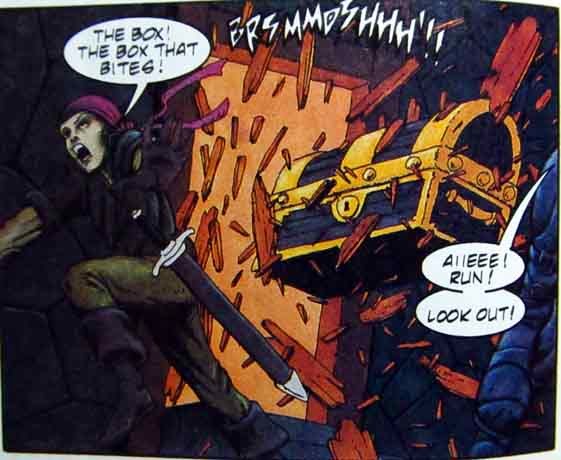“Somewhere on the windswept east coast of Yorkshire there’s
a mind so steeped in the idioms and lore of American pop culture that it all
but constitutes a 51st state.
The mind belongs to Peter Crowther, and at the heart of its
multifarious, ever-churning swirl are the picket-fence stylings of Rockwell,
the folksy profanity of King, the deadpan gravitas of Serling, and the madcap
irreverence of Bunny (Bugs).”
--James Lovegrove
Remember that movie “Planes, Trains, and Automobiles”? We utilized all three during this year's trip to
England. All those trips proved enjoyable
in their own way, but our ride on the tube from Heathrow Airport to Victoria Station
proved particularly memorable. For my wife and I fell into conversation with a English gentleman from London who, it seemed, was as fascinated by
American culture as we are by his own.
He shared with us his experiences during his recent trip to New York,
and expressed a desire to drive Route 66, see Los Angeles and Silicon Valley,
and visit “Big Sewer.”
After a few
repetitions of the latter term, we finally realized that he meant “Big Sur," a scenic spot along the California coast, just a little south of Monterey and Carmel.
We shared with him about our trip last year
to Yorkshire, and when we mentioned Holmfirth, he didn’t recognize the town.
But when we mentioned that it was where “Last of the Summer Wine” was
filmed, he nodded in recognition. Of
course, he knew of the show, as it’s the longest-running comedy series
in British TV history (if not the world).
But try as he might, he had just never gotten the humor of the
show. For him, the series employed a
form of Northern humor which he simply didn’t understand, and he found it
interesting that we, not being British, and much farther removed from Yorkshire,
should understand it and enjoy it, when he himself could not.

At the World Fantasy Convention in Brighton, I compared the
membership list with the authors of the books we received at registration,
and took the books that matched to the mass signing evening event. For some reason, I missed Peter Crowther’s
name on the list, or perhaps our copy of Darkness, Darkness hid somewhere in
our room during the process. But, along
with the books I had for the attending authors to sign, we also took our convention
book, which had an autographs page.
After waiting in line for several authors whose books we had read, I suddenly found myself standing near Peter Crowther.
No
one stood before him at that moment. Peter Crowther looked at me. I looked at him. Of course, I recognized his name. Feeling somewhat guilty, as I had not read
any of his stories to that point, I sheepishly asked if he would sign my
book. He did so. Somehow, in that brief moment, I
glimpsed a little of myself in him, or at least qualities I admire. Quiet repose.
Satisfaction with his place in the world, without the need to trumpet his
triumphs. Generosity of spirit. Kindness.
And, dare I say it? He just seemed like a proper English
gentleman.

It’s dangerous to attribute qualities to a person
you don’t know, but somehow, that brief moment in his company made me want to
read something he had written. I saw him
several times over the course of the weekend, usually in the restaurant at
breakfast, and each time, my observations only reinforced my initial assessment
of his character. So imagine my surprise
when I later realized that I had received one of his
books. Imagine my delight at realizing
that I possessed a book by someone who had impressed me.
Darkness, Darkness is worthy of the all the praise heaped
upon it by other noteworthy authors at the beginning of the book. Not only have readers found Peter Crowther's books
enjoyable, but many of his stories have been adapted to TV. He’s also noteworthy as a publisher, having
started PS Publishing fifteen years ago, a firm which now publishes 30-40 books
annually. I’m glad I finally got around to
reading one of his stories, and meeting a man who has become a driving
force in the British Science Fiction and Fantasy genre. It was also nice to meet someone, even
briefly, who appears to be as fascinated by American culture as I am by his
own.
Darkness, Darkness is heaped with aspects of American
culture that sucked me into the story, from the Marlboros the characters smoke,
the Juicy Fruit gum they chew, the DeSoto trucks they drive and the Cameros
that fly (Yes, fly!), to the names of the musicians the radio DJ Melanie plays, such as
Perry Como, Frank Sinatra, and Andy Williams.
Now, if only Crowther had set his story along Route 66. Or better
yet, somewhere near “Big Sewer.” (Or, if you prefer, “Big Sur”). I can think of another English gentleman who might have enjoyed reading it, even if it was written by a Northerner.
Dragon Dave
Related Internet Links

























